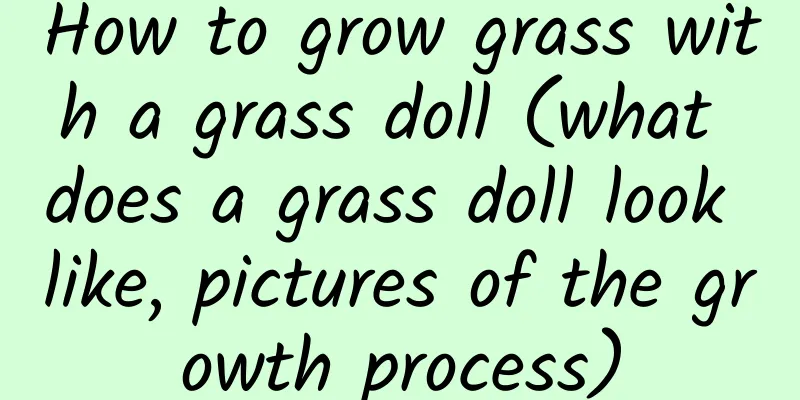How much is the average yield of yellow peach per mu? Planting technology and management

Yellow peach yield per muThe average yield of yellow peaches is about 5,000 catties per mu . If the Golden Crown yellow peaches are densely planted and well managed, the yield per mu can reach 2,000 to 4,000 catties in the second year and 6,000 to 8,000 catties in the third year. Yellow peach planting prospects1. Planting cost Only about 50 yellow peach trees can be planted per acre, and the cost includes the cost of saplings, land rental, fertilizers, pesticides, equipment, labor, etc. The total planting cost per acre is about 5,000 to 8,000 yuan. If the current purchase price is 4 yuan per catty, the total profit per acre is about 20,000 yuan. According to the wholesale price, the profit can reach hundreds of thousands of yuan, and after deducting the cost, it can still earn 100,000 yuan. The profit of planting yellow peaches is still considerable. 2. Planting prospects Yellow peaches are easy to grow and manage, and are suitable for large-scale farms. As the processing industry develops, its products are increasing, and the market demand for yellow peaches is increasing. In general, it has been rising. In addition, yellow peaches in the production area are bagged, which significantly improves the quality of yellow peaches on the market. Whenever yellow peaches are on the market, the market demand will increase. If you want to grow yellow peaches with high efficiency, you must use scientific cultivation and management techniques to improve the quality of yellow peaches. How to grow yellow peaches to achieve high yield1. Planting of seedlings: Choose to do it in late winter or early spring or in winter, preferably no later than the end of February. This will significantly improve the survival rate. Before planting, choose relatively high-quality seedlings, bury them in the soil three times, tamp them down twice, and lift them up once. 2. Fertilizer management: After the fruit is harvested in September or October, apply decomposed organic fertilizer in combination with tillage and soil improvement, and mix in diammonium dihydrogen phosphate and potassium sulfate. Generally, 3,000 to 4,000 kilograms of organic fertilizer are applied per mu, mainly in ditches, to avoid direct contact between plant roots and fertilizer to avoid burns. 3. Water management: Do not water too much during the flowering period, as this will cause the flowers and fruits to fall. However, during the growth period of the fruit, if there is drought and high temperature, the ground should be watered, and the leaves should be sprayed in the morning or evening. Peach trees are afraid of waterlogging, so drainage preparations should be made. 4. Field management: The most important thing in field management is fertilization. During the young tree period, fertilization should be applied in small amounts and frequently, with nitrogen fertilizer as the main ingredient to promote the growth of branches and leaves. |
<<: Is konjac a carbohydrate or a vegetable?
>>: Can Bodhi trees be planted in the north?
Recommend
What rootstock is used for avocado grafting? How to graft avocado trees?
1. Rootstock Selection Avocado is a deciduous tre...
How to fertilize peach blossoms
1. Its need for fertilizer Its demand for fertili...
Which month is best for planting tomatoes?
Tomato, this well-known vegetable , also commonly...
How many pounds of mulberry are produced per mu? The benefits and profits of growing mulberry
Mulberry yield per mu Mulberry refers to mulberry...
How often should roses be watered?
1. Frequency 1. Spring and Autumn: The temperatur...
How to grow camellia so that it blooms
Camellia flowering time Camellias usually bloom i...
How to prepare soil for succulent plants?
Succulent plants suitable soil requirements Altho...
How to raise succulent plants
1. Lighting The growth of the Master plant prefer...
Can purple spiderwort be grown hydroponically?
1. Is it possible? It is also called purple bambo...
What is the matter with dried white orchid leaves?
1. Root rot 1. Reason: The roots of white orchid ...
Seabuckthorn edible methods and taboos
How to eat Sea buckthorn juice Here we require th...
What kind of lamp is generally used for plant supplementary lighting
1. LED lights LED lamp is currently the most comm...
Should I use a large or small pot for Monstera?
Should I use a large or small pot for Monstera? M...
Can Milan be propagated by cuttings?
Milan flowers can bloom all year round. Its flowe...
How to plant Zi Chi Nian Hua seeds
Preliminary preparation Before the planting work ...









